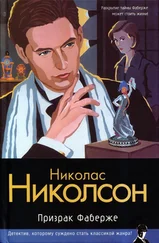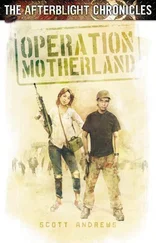He can’t blame Geraldine, and yet he does. He knows that the physical side of love is not the most important, but he can’t stop regretting it. He tells himself that this is his lower nature, his animal nature, and that he should rise above it. He reminds himself of all the priests of the Church, and the monks at Downside, who have taken vows of chastity the better to serve God. His mind admires them and wishes to emulate them, but his body aches with unsatisfied desire.
He can’t blame Geraldine, and yet he does. Every time he’s told how lucky he is to have such a perfect wife he flinches, stung by guilt that he doesn’t appreciate her more. But what can he do? Somewhere buried deep within him, beyond the reach of faith or reason, lies the stubborn belief that she could love him better, with her body as well as her soul, but does not choose to. The matter appears to be closed as far as she’s concerned.
‘Let’s not talk about it, darling. It makes me so miserable. We just have to be brave.’
The worst of it for Larry is that for all her concern for him, he doesn’t believe she knows the price he has to pay. The few times they’ve talked about his ‘sacrifice’ it’s always been in terms of the children they’ll never have. Perhaps she doesn’t mention the pleasures of sex because she’s shy of the words she’d have to use. But what if she’s never known or even guessed at such pleasures? How could she consider it a significant loss? Of course she will have heard that men keep mistresses and frequent houses of ill repute, but men have other pursuits that aren’t shared by women. They play cricket and smoke cigars. A man may not wish to give up smoking, but if his wife’s health requires that he do so, he’ll surely surrender the modestly pleasurable habit with a good grace.
If this is so, if Geraldine is unaware of the strain she subjects him to, then that makes her all the more innocent and deserving of his love. But at the same time, in that deep secret place within him, it adds to the growing store of his anger. This anger frightens him, and shames him. The sweeter she is to him, the more he punishes himself for his ingratitude and his selfishness. The more he chastises himself, the more he longs to chastise her. And so, swept by fantasies of violence, he begins to fear himself.
He remembers Ed in the dark chapel at Edenfield shouting at him, ‘Sex is a monster, Larry!’ He remembers Nell, naked in his arms, saying, ‘If you fuck me will God punish you, Lawrence?’ He remembers the electric thrill of hearing her say the word fuck . He had no fear then of God’s punishment, he knows sex is part of God’s creation. But perhaps he’s being punished now.
The longing is too strong. It must be controlled. All men know this instinctively, that if released to do as they wish they would run amok, they would fuck and fuck and fuck . There’s little love in this, only appetite. It’s the dark side of love, perhaps it’s not love at all, perhaps it’s the absence of love. Which means that Geraldine is right, sex isn’t what really matters. The good life can be lived without it.
So why does this capitulation feel like weakness? Because it does. Larry has felt the tug all his life of opposing forces: he wishes to be good, and he wishes to be a man. He wishes, in short, to be a good man. But when he’s good he senses that he’s weak, and a true man is strong. He has known himself to be weak countless times, most of all on the beach at Dieppe. He has been a good man just the once, in the midst of the Indian partition riots, when he held his wounded friend in his arms. In his exultation and relief he went, blood still wet on his clothing, to offer his newly purified love to a woman who wanted his goodness, but not his manhood.
When he thinks this way it half drives him mad. He wants to stamp and shout out, I’m a man! How does a man behave under these circumstances? He demands his rights. He satisfies his desires.
You think she’d like it if I raped her?
Ed’s voice echoing out of the past.
No, she wouldn’t like it. Nor would I. And anyway I could never do it. I’m too good, and too weak.
* * *
He begins to spend longer hours in the office. He studies the history of the business, and tries to understand the key factors that contribute to the good years and the bad years. Like all newcomers to a long-established business, he believes he can see better ways of ordering matters. He dreams of the day he’ll be in charge of the company, and able to lead it into a new era of security and prosperity.
He talks over his ideas with his father.
‘What’s the biggest problem we have in the banana business? Uncertainty of supply. We have years when we just don’t have the fruit to fill the ships, but we still have to maintain the fleet. These are the fixed costs that kill us. We must maintain the supply. So it all comes down to the producers on the ground. If they keep ahead of disease, if they replant rapidly after hurricane damage, if they manage the picking and packing as efficiently as possible, if they care as much as we do about the quality of the fruit – well, that’s going to deliver a more reliable stream, isn’t it? So it makes sound economic sense to get them to regard the company as their company. How do we do that? How do we make them understand we’re all working together for the same goal? We extend to Jamaica and the Canaries and the Cameroons the benefits and the bonuses we give our people here at home.’
William Cornford nods his head in his slow way, that does not signify agreement.
‘What you suggest costs money.’
‘Of course. But my way, the company makes more money. If everyone on the payroll wants the company to succeed, then they work harder, they’re more vigilant, they use their local knowledge and ingenuity to do the job better, they don’t get into labour disputes, they don’t fall sick, they see the fruits of their labour, and we all make money!’
His father nods his head again and frowns and sighs.
‘We are a subsidiary of a larger company,’ he says.
He goes to his shelves and takes down a book called The Banana Empire , by Kepner and Soothill, and opens it to a page he has previously marked.
‘This is an investigation into the United Fruit Company,’ he says. ‘It was written and published before the war, in ’35. In all fairness to the company I should tell you that the authors have been accused of making Communist propaganda.’
He reads from the book in his slow grave voice.
‘This powerful company has throttled competitors, dominated governments, manacled railroads, ruined planters, choked cooperatives, domineered over workers, fought organised labour, and exploited consumers. Such usage of power by a corporation of a strongly industrialised nation in relatively weak foreign countries constitutes a variety of economic imperialism.’
Larry hears this in silence.
‘I should also add,’ says his father, ‘that such practices have not been the norm in Jamaica, which has the great benefit of being part of the British empire.’
Larry gives a short laugh.
‘One empire pitched against another.’
He reaches out one hand for the book.
‘I’d better read it, hadn’t I?’
‘You’ll only find one mention of our company, on page 181. I know it by heart. They write, “Elders & Fyffes from then on” – that is, from 1902 – “became the European arm of the United Fruit Company.” That is not so.’ His voice has risen. His face is flushed. ‘Fyffes is an independent company, in spirit if not in fact.’
Larry stays up late that night reading the book. The next morning he speaks to his father over breakfast.
Читать дальше












